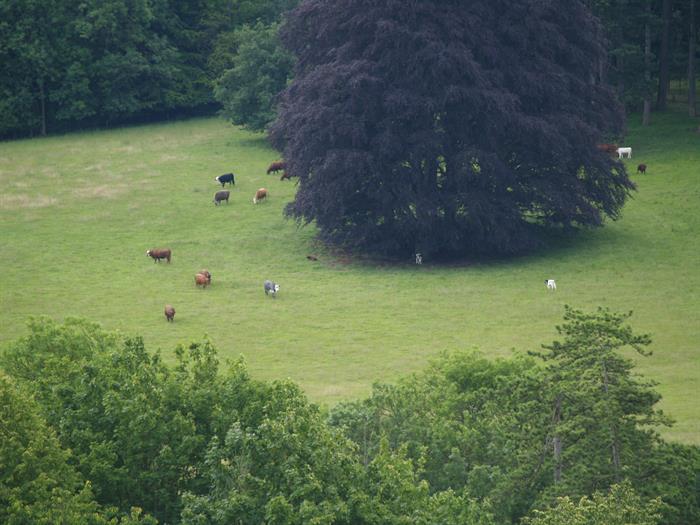Viable Farming
How Can Farming Be More Viable?
Specific strategies are required and can be grouped into to three separate though related areas of concern:
1. Farming and Natural Resources
When the production of food and fibre degrades the natural resource base, the ability of future generations to produce and flourish decreases.
 Water is the principal resource that has helped agriculture and society to prosper, and it has been a major limiting factor when mismanaged. The most important issues related to water quality involve soil salinity and contamination of ground and surface waters by pesticides and nitrates.
Water is the principal resource that has helped agriculture and society to prosper, and it has been a major limiting factor when mismanaged. The most important issues related to water quality involve soil salinity and contamination of ground and surface waters by pesticides and nitrates.
Agriculture also affects water resources through the destruction of riparian habitats within watersheds. The conversion of wild habitat to agricultural land reduces fish and wildlife through erosion and sedimentation, the effects of pesticides, removal of riparian plants, and the diversion of water. The plant diversity in and around both riparian and agricultural areas should be maintained in order to support a diversity of wildlife. This diversity will enhance natural ecosystems and could aid in agricultural pest management.
2. Plant and Animal Production Practices
Sustainable production practices involve a variety of approaches. Specific strategies must take into account topography, soil characteristics, climate, pests, local availability of inputs and the individual grower's goals.
Despite the site-specific and individual nature of sustainable agriculture, several general principles can be applied to help growers select appropriate management practices:
- Selection of species and varieties that are well suited to the site and to conditions on the farm.
- Diversification of crops, livestock and cultural practices to enhance the biological and economic stability of the farm.
- Management of the soil and water to enhance and protect quality.
- Efficient and humane use of inputs: For example, modern agriculture is heavily dependent on non-renewable energy sources, especially petroleum. In sustainable agricultural systems, there is reduced reliance on non-renewable energy sources and a substitution of renewable sources or labour to the extent that is economically feasible.
- Consideration of farmers' goals and lifestyle choices.
3. Economic, Social and Political Contexts
Sustainable agriculture requires a commitment to changing public policies, economic institutions, and social values. Strategies for change must take into account the complex, reciprocal and ever-changing relationship between agricultural production and the broader society.
The "food system" extends far beyond the farm and involves the interaction of individuals and institutions with contrasting and often competing goals including farmers, researchers, input suppliers, farm workers, unions, farm advisers, processors, retailers, consumers, and policy makers. Relationships among these actors shift over time as new technologies spawn economic, social and political changes.
A wide diversity of strategies and approaches are necessary to create a more sustainable food system. These will range from specific and concentrated efforts to alter specific policies or practices, to the longer-term tasks of reforming key institutions, rethinking economic priorities, and challenging widely-held social values.
Learn More
Learn more with ACS Distance Education - take a look at our great range of
Agriculture Courses - see the links at the bottom of this page for all our Agriculture Courses, plus a few of our bestsellers.
If you are not sure of what to study, or have any QUESTIONS, please get in touch with us today. You can submit questions to our specialist Agriculture Tutors, or phone us on (UK) 01384 442752 or (International) +44 (0) 1384 442752.
[14/03/2025 20:57:41]
More from ACS
Directory to dozens of courses include short courses, certificates and diplomas.